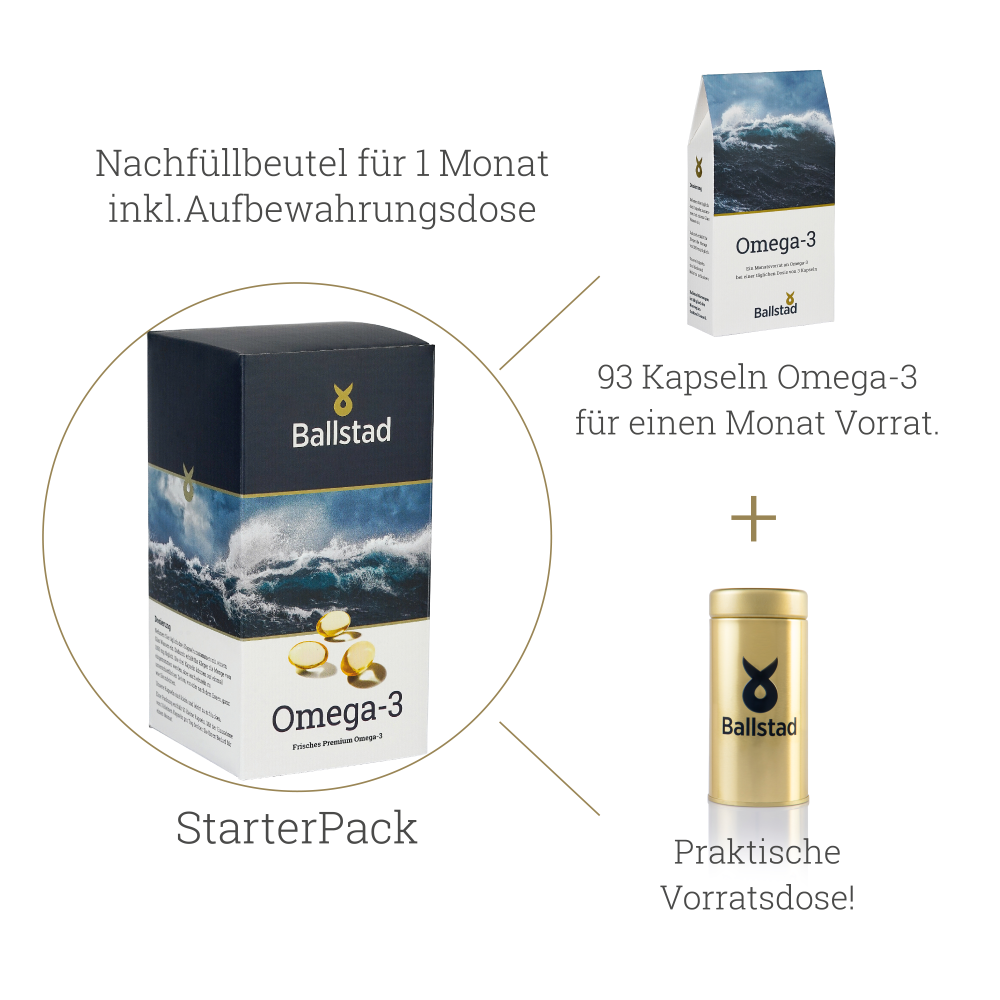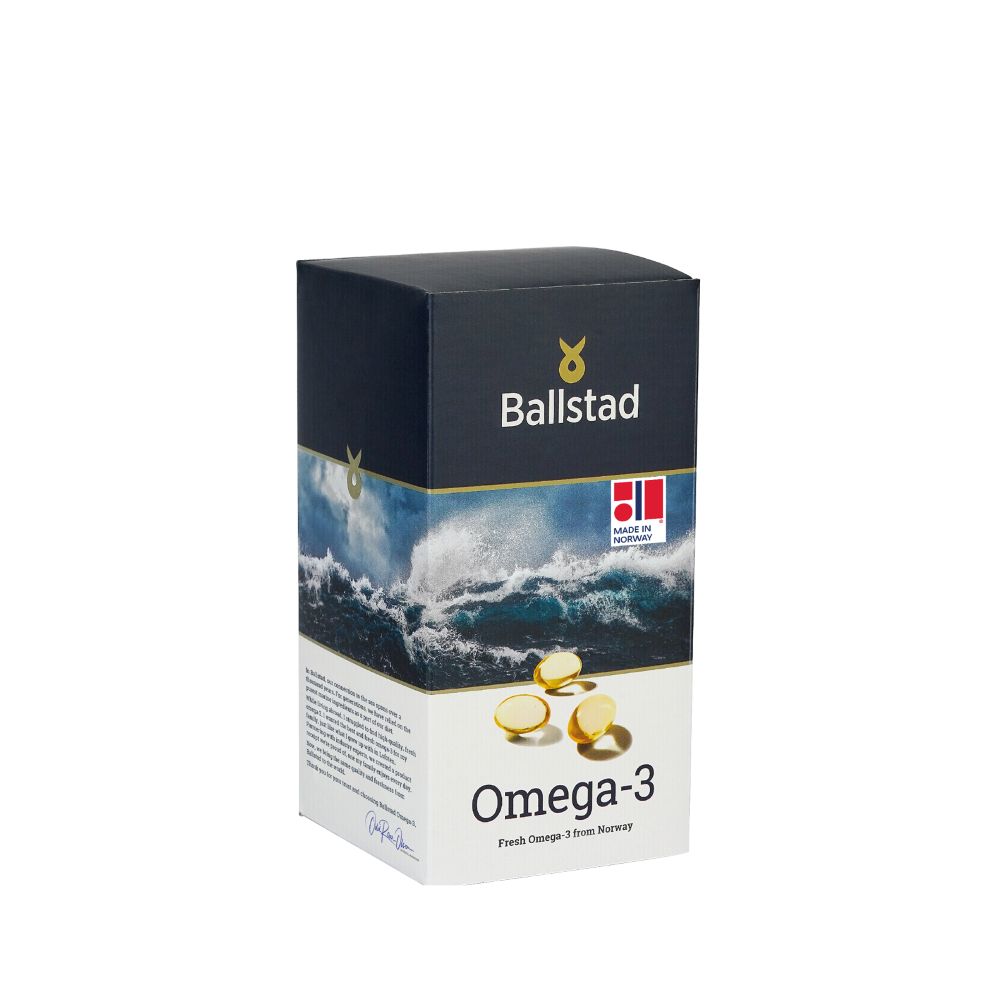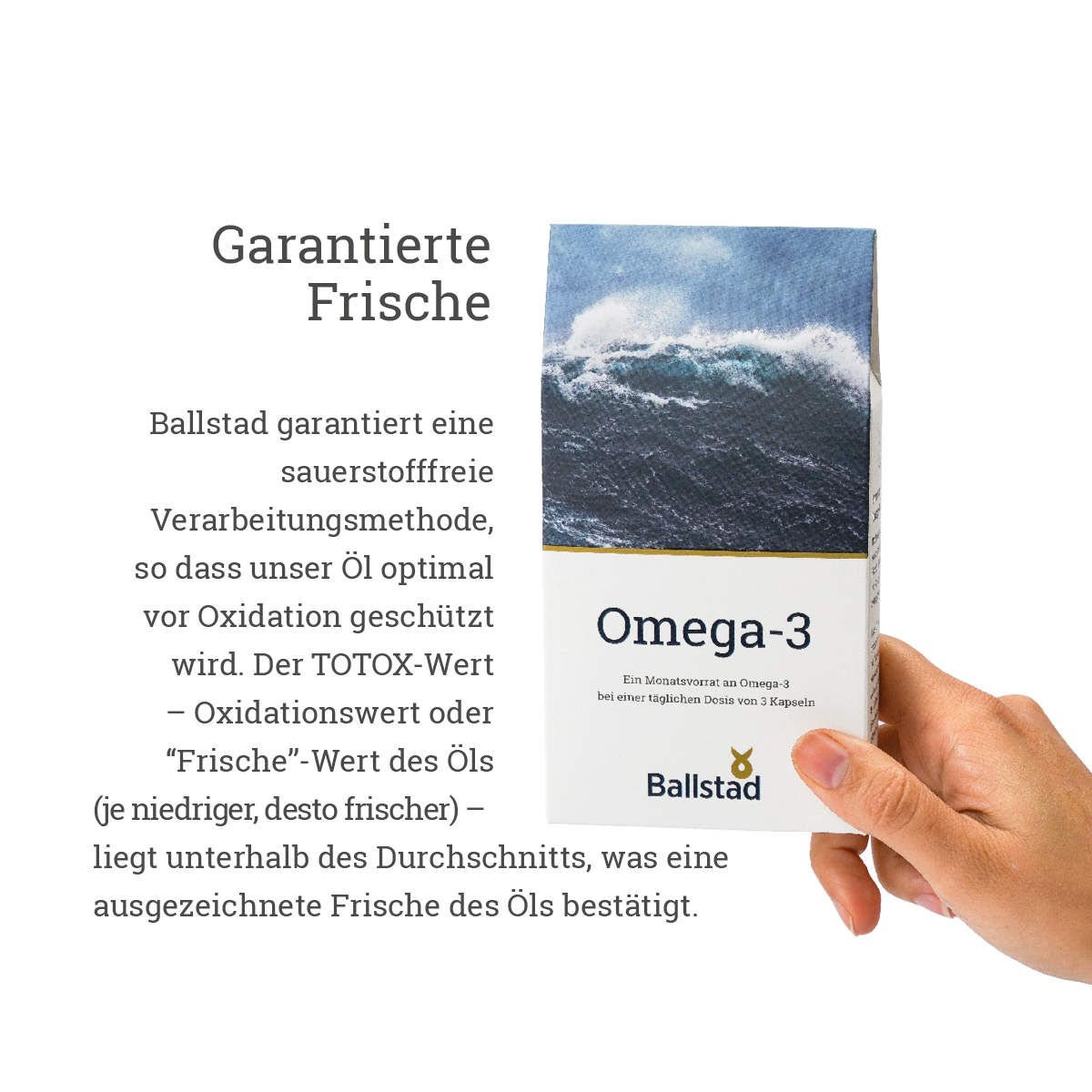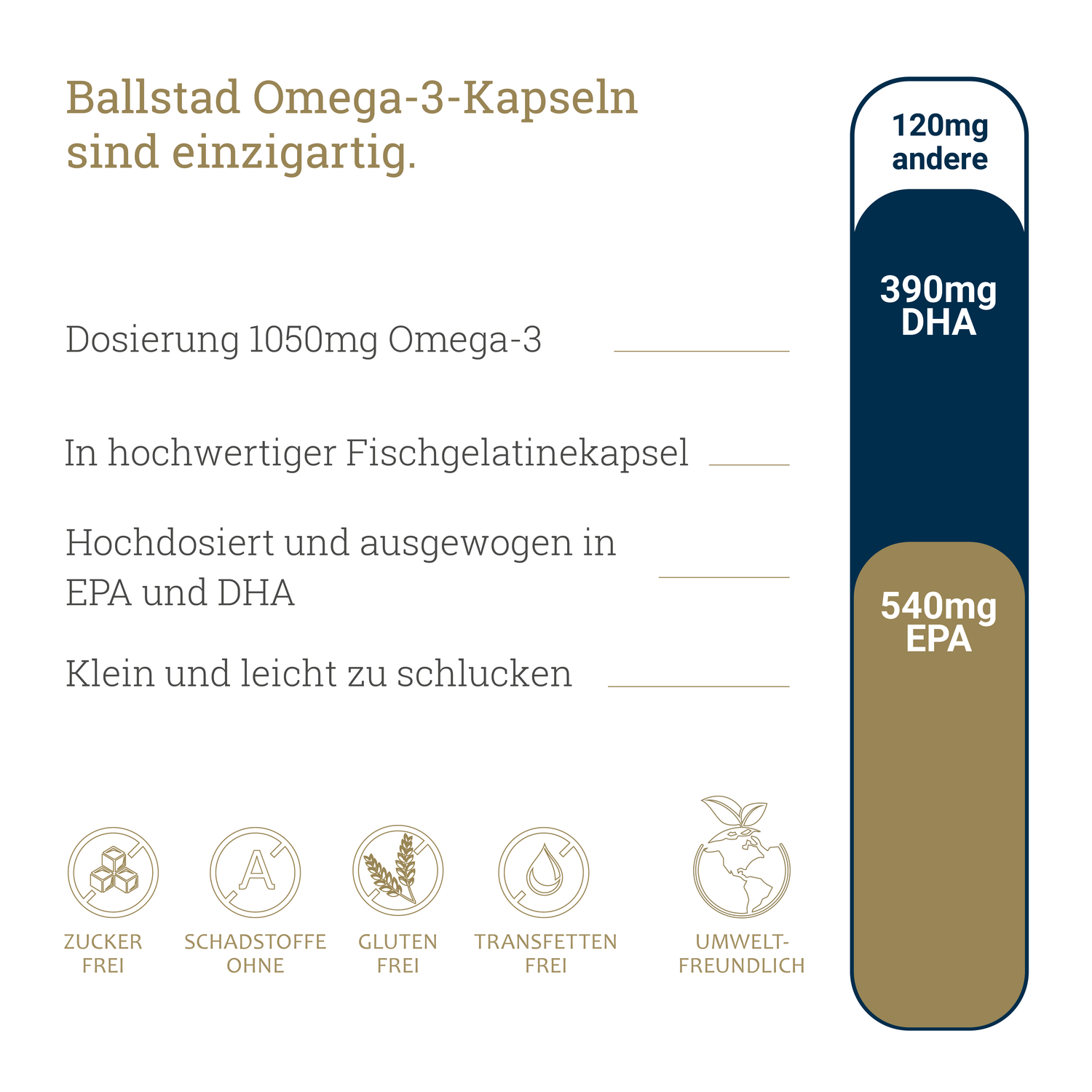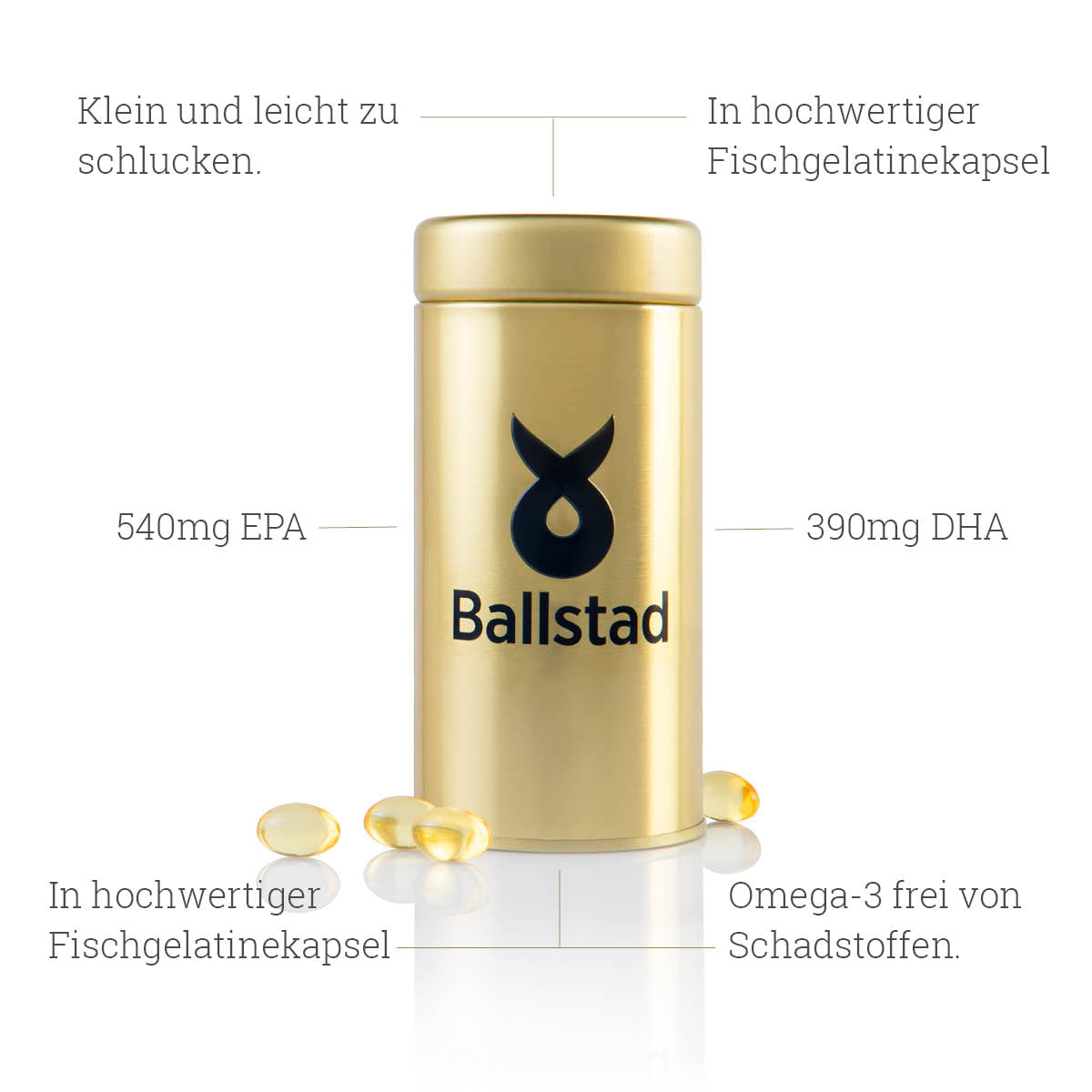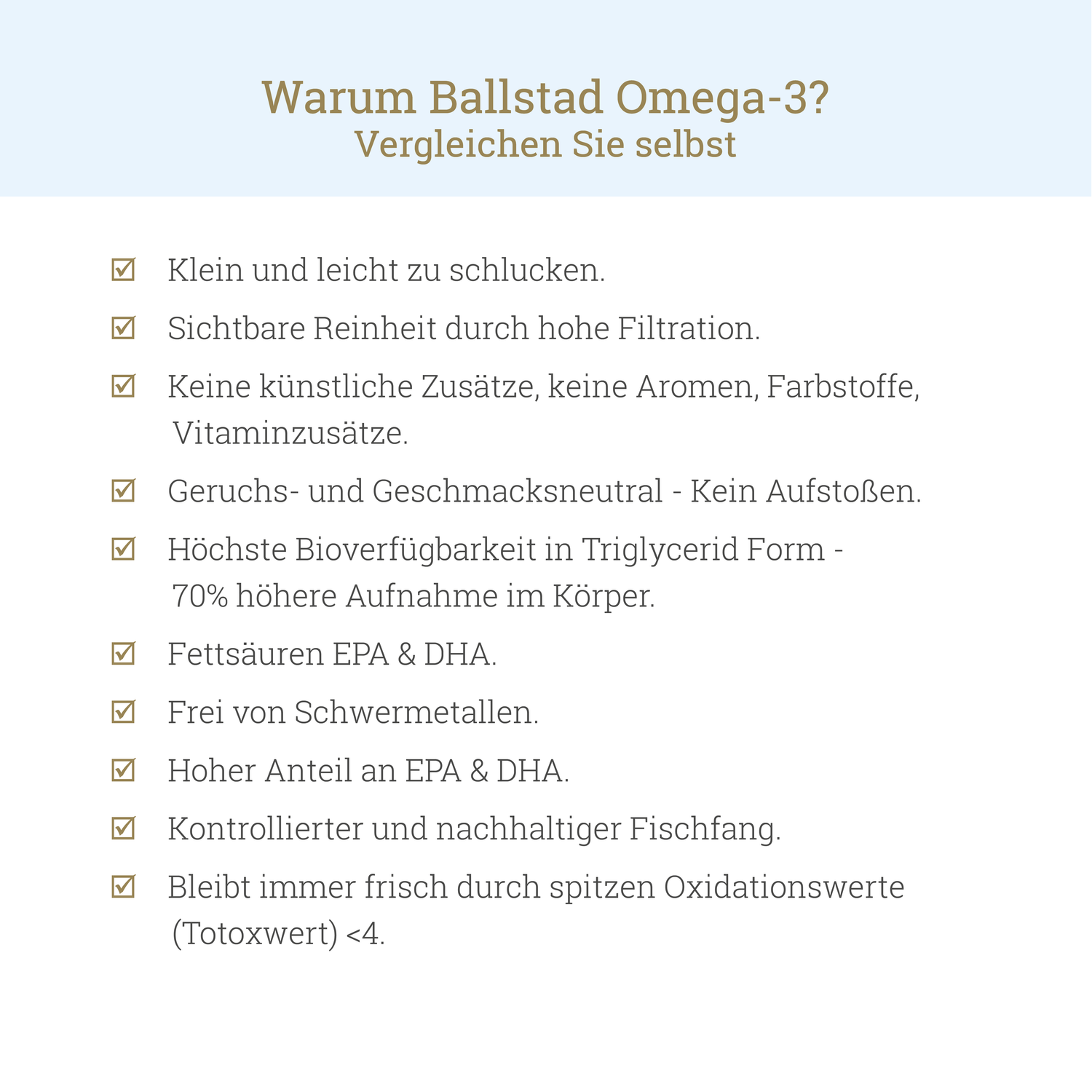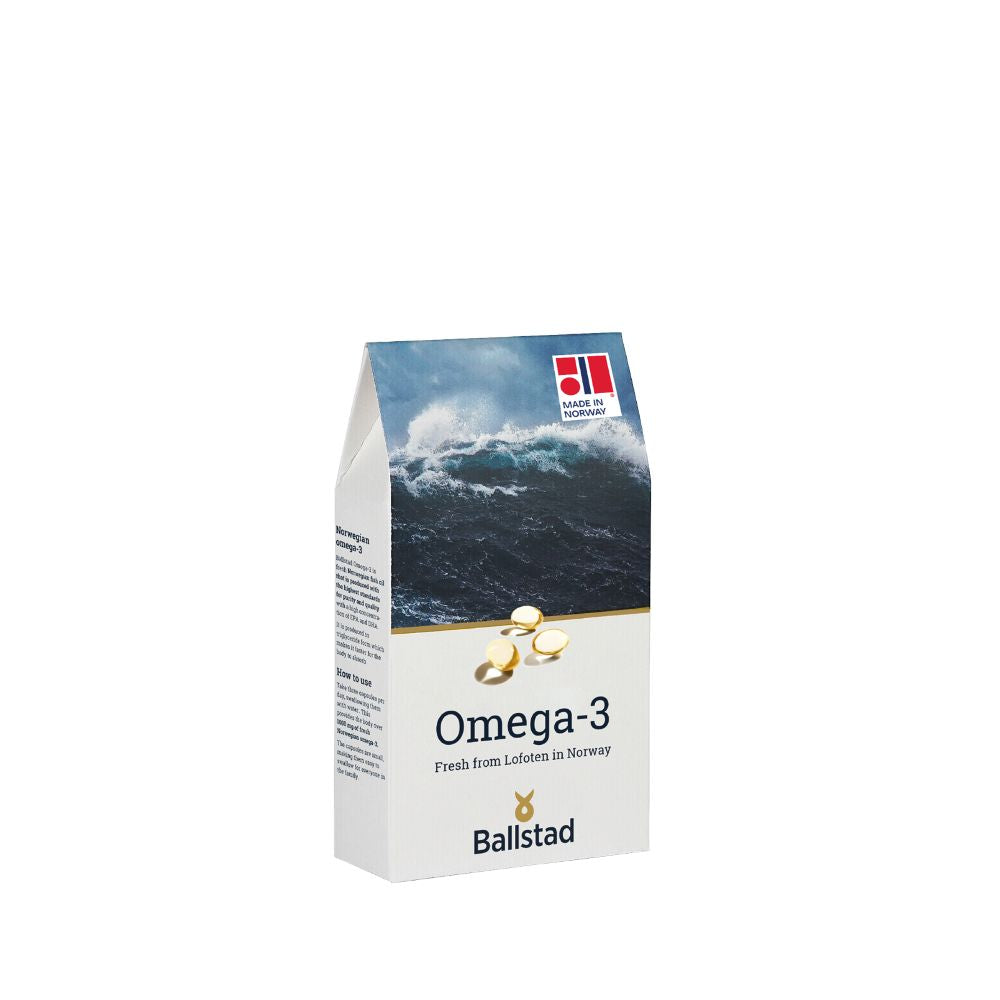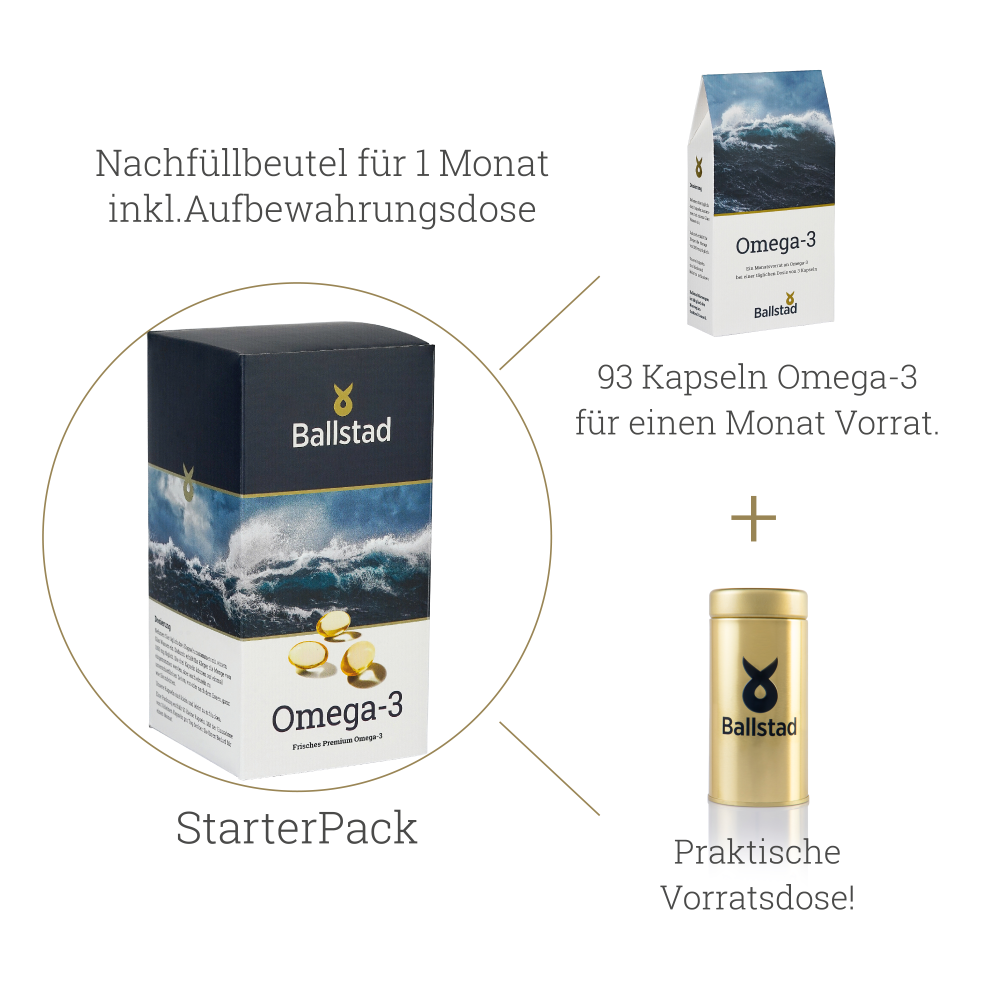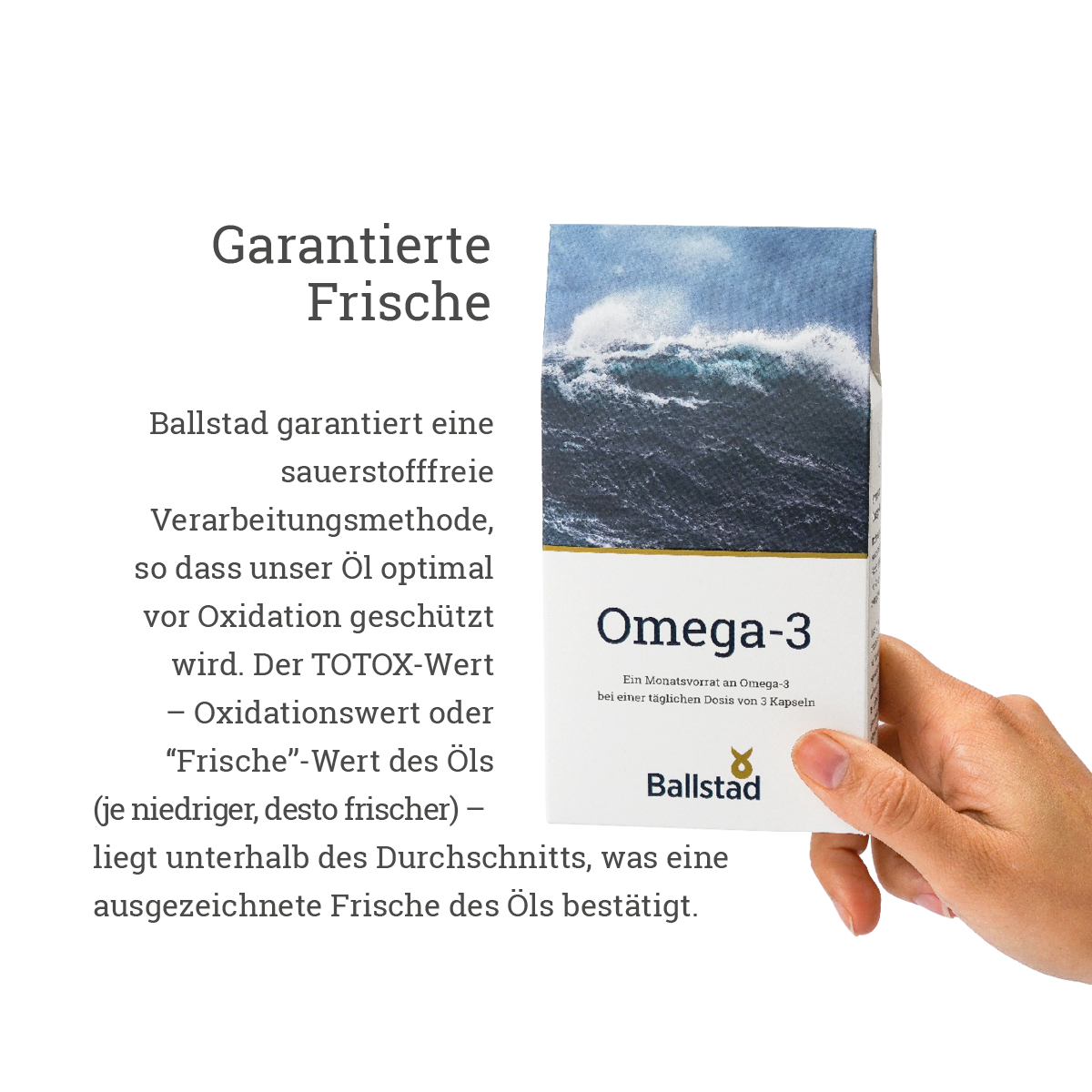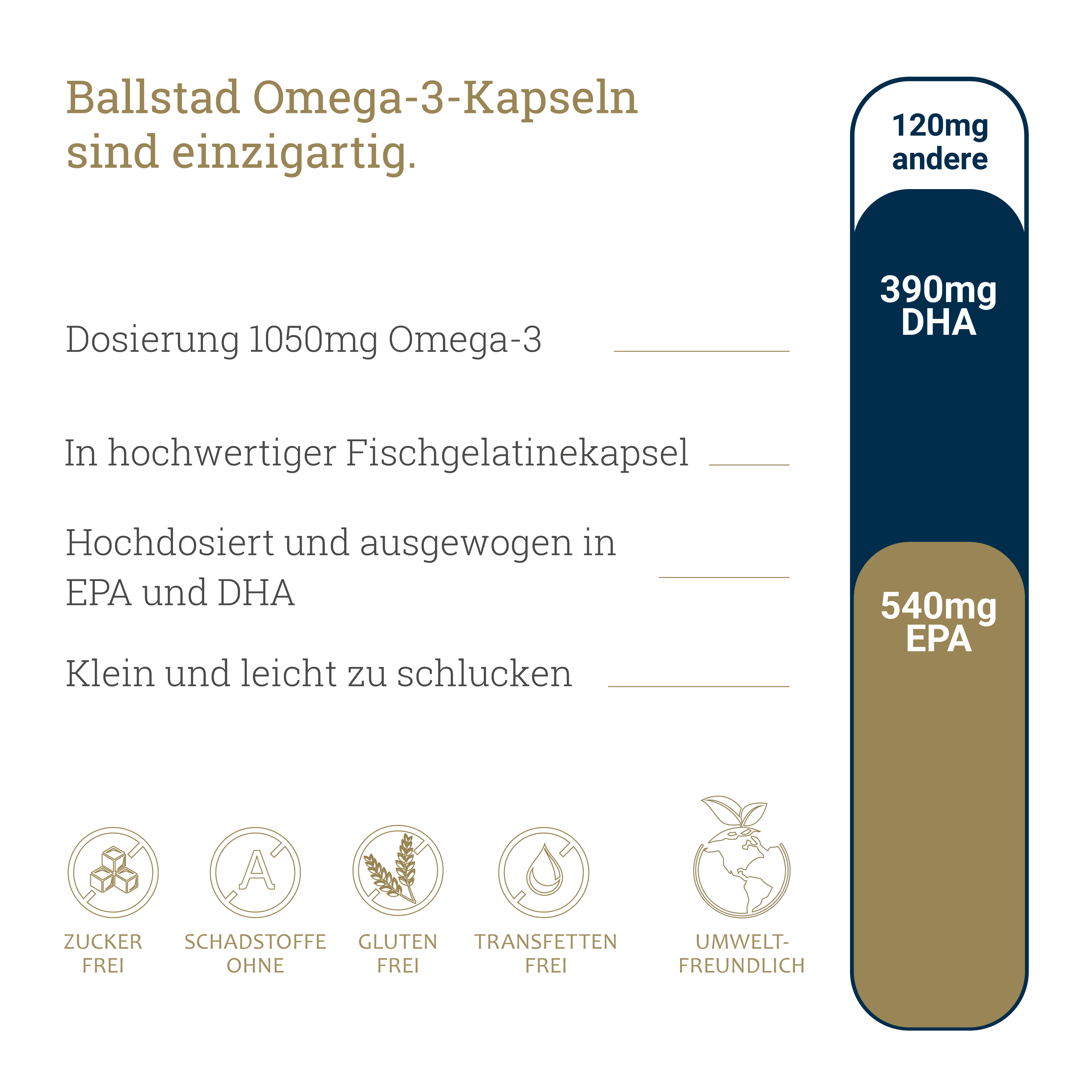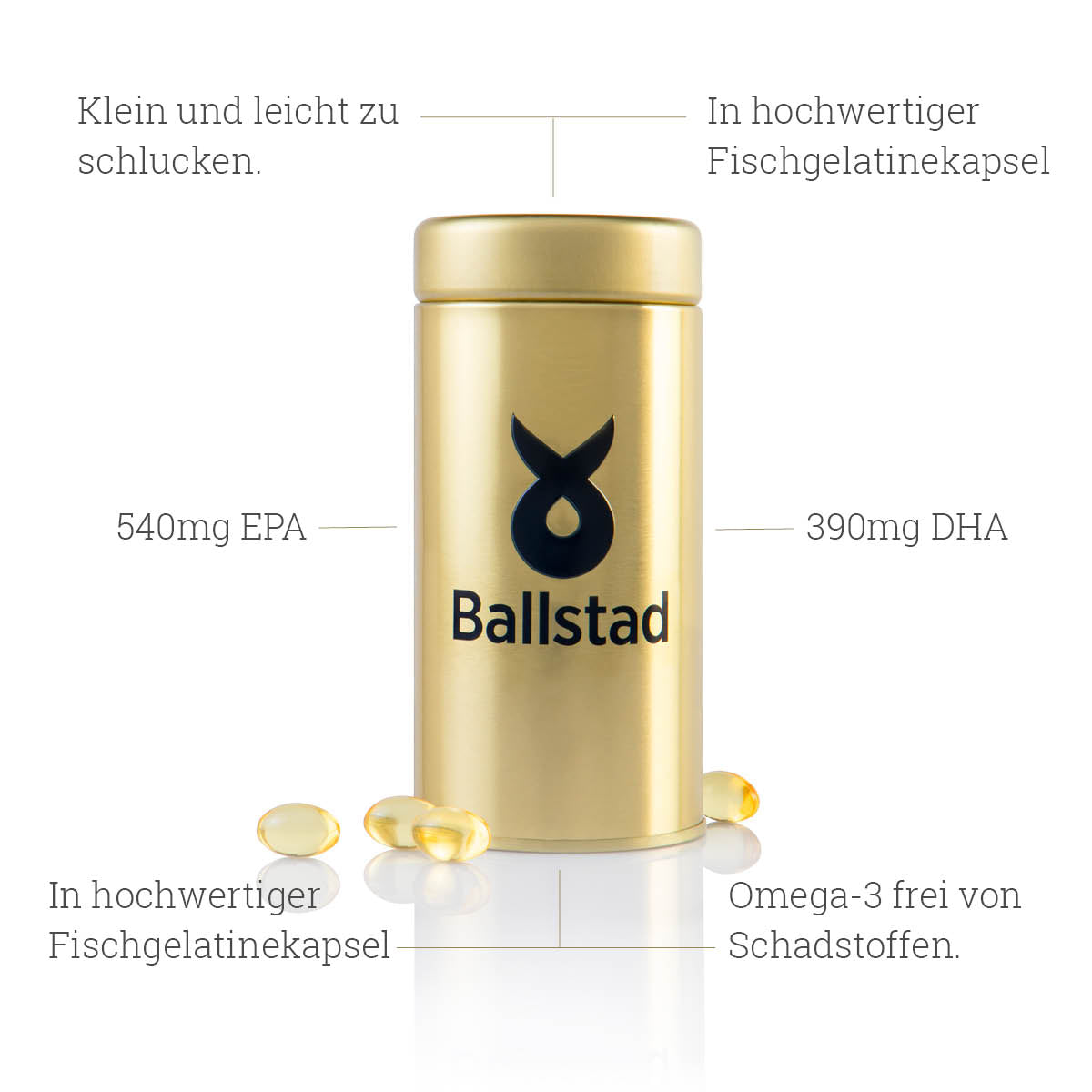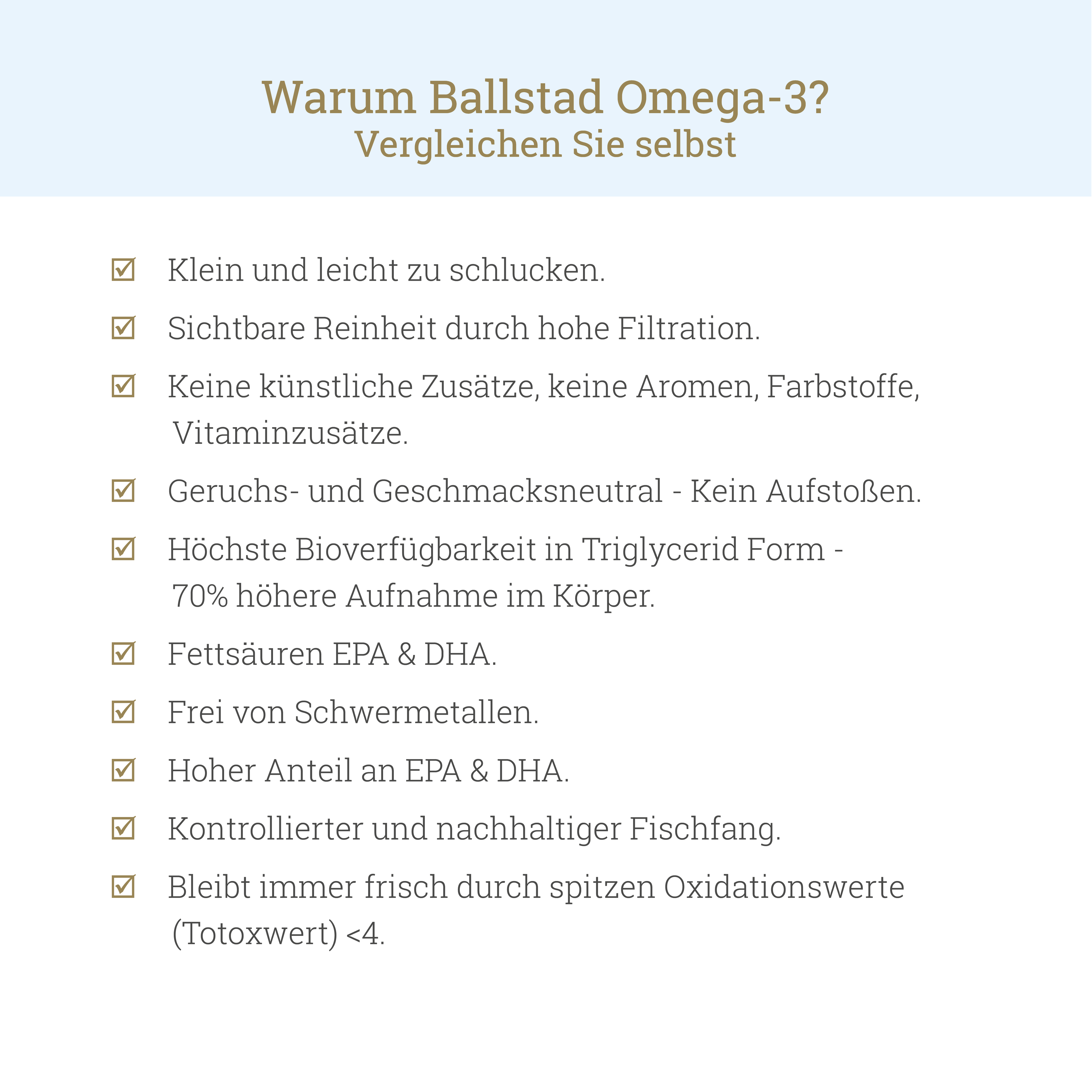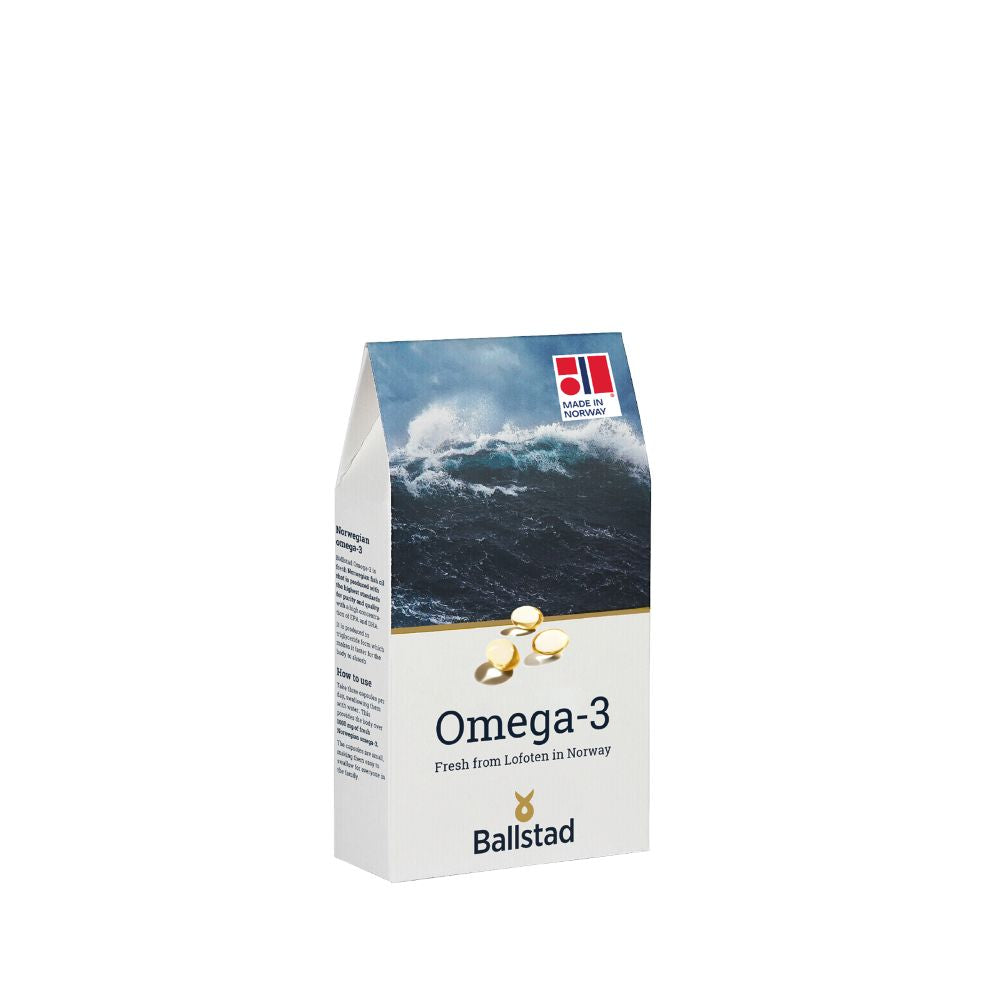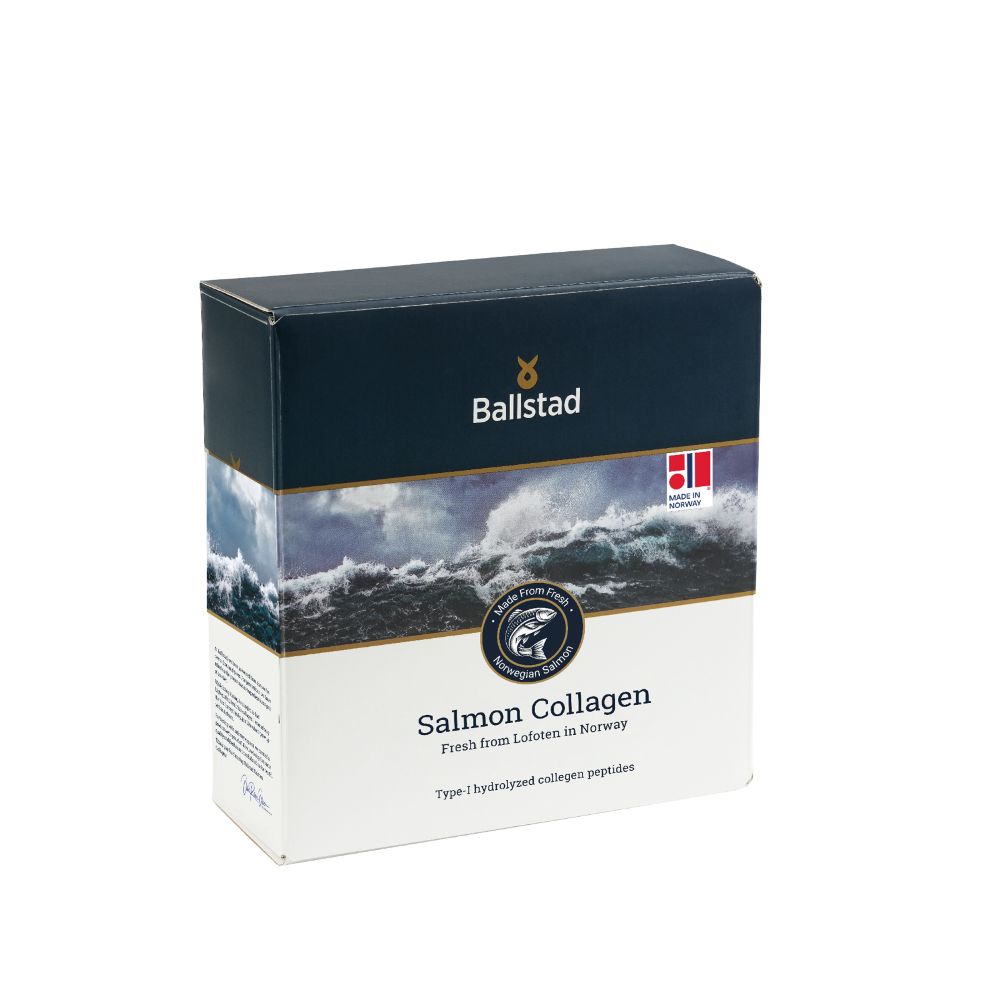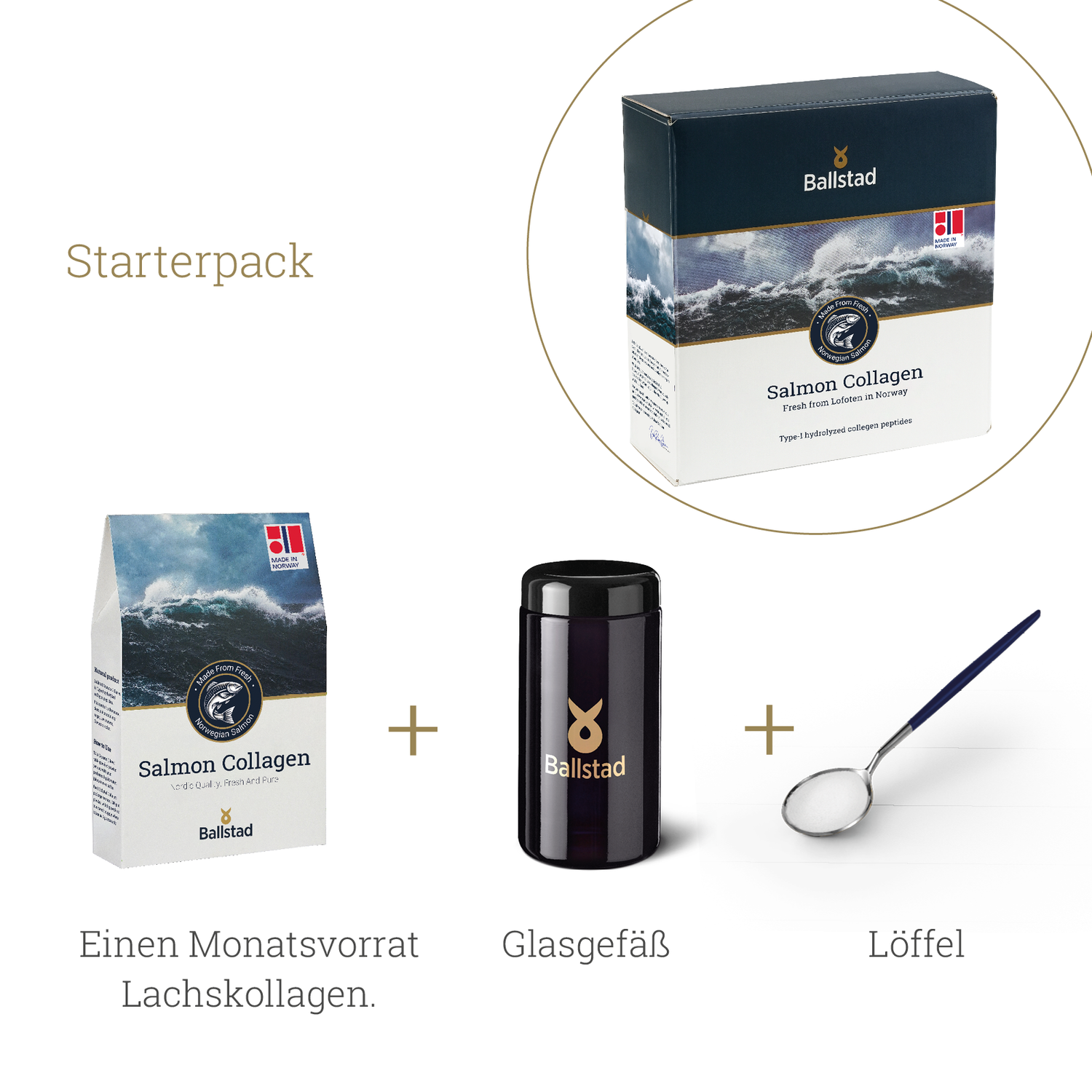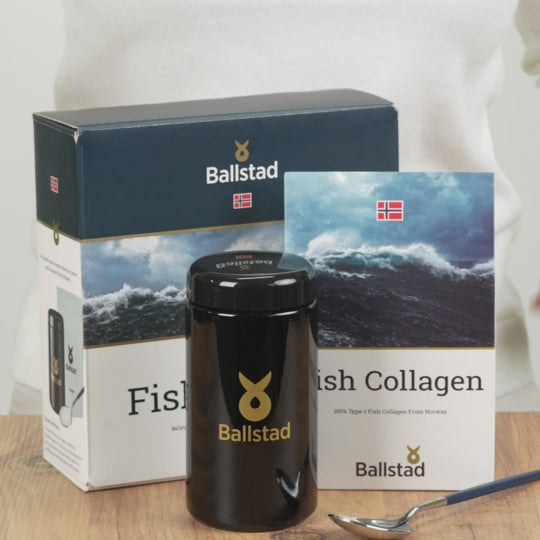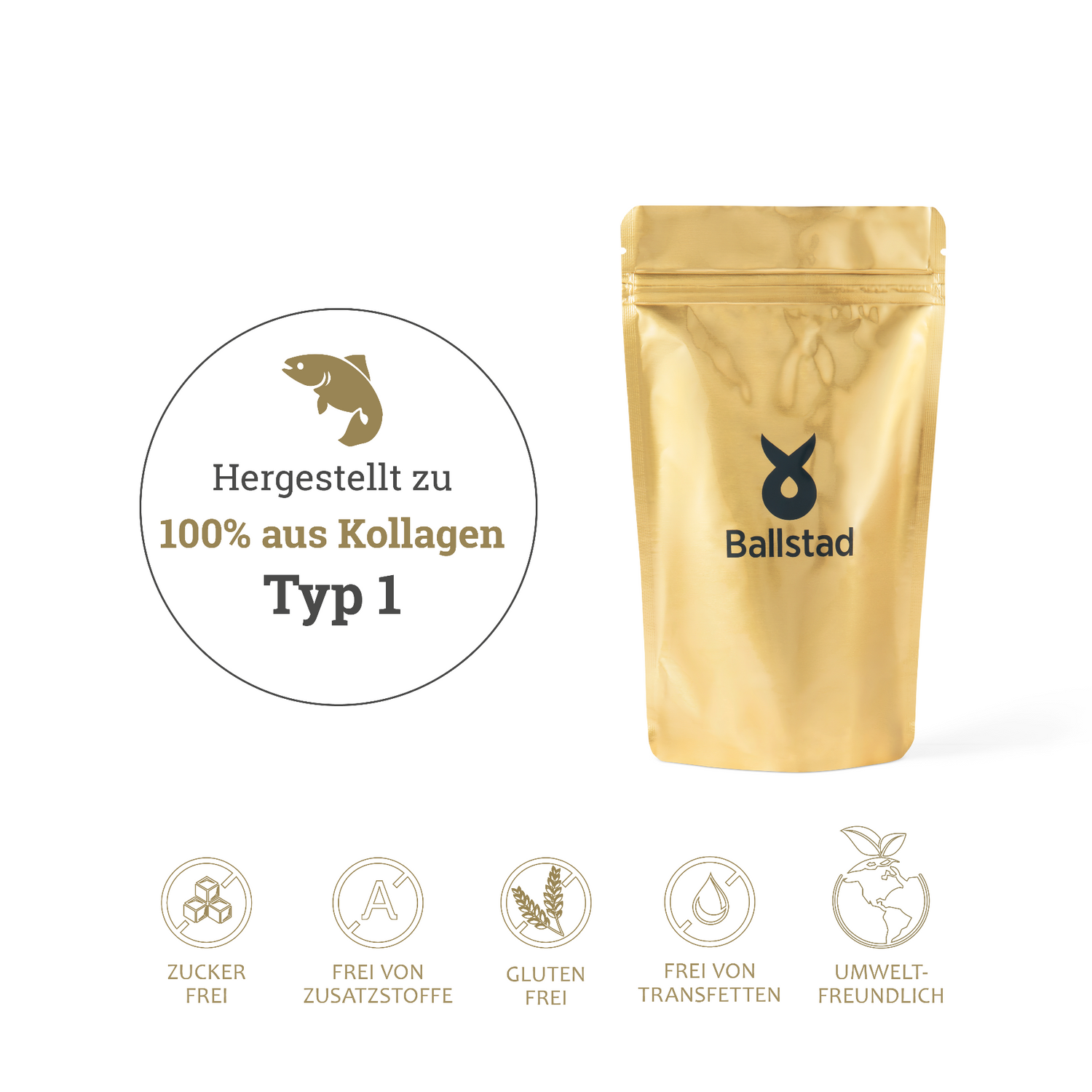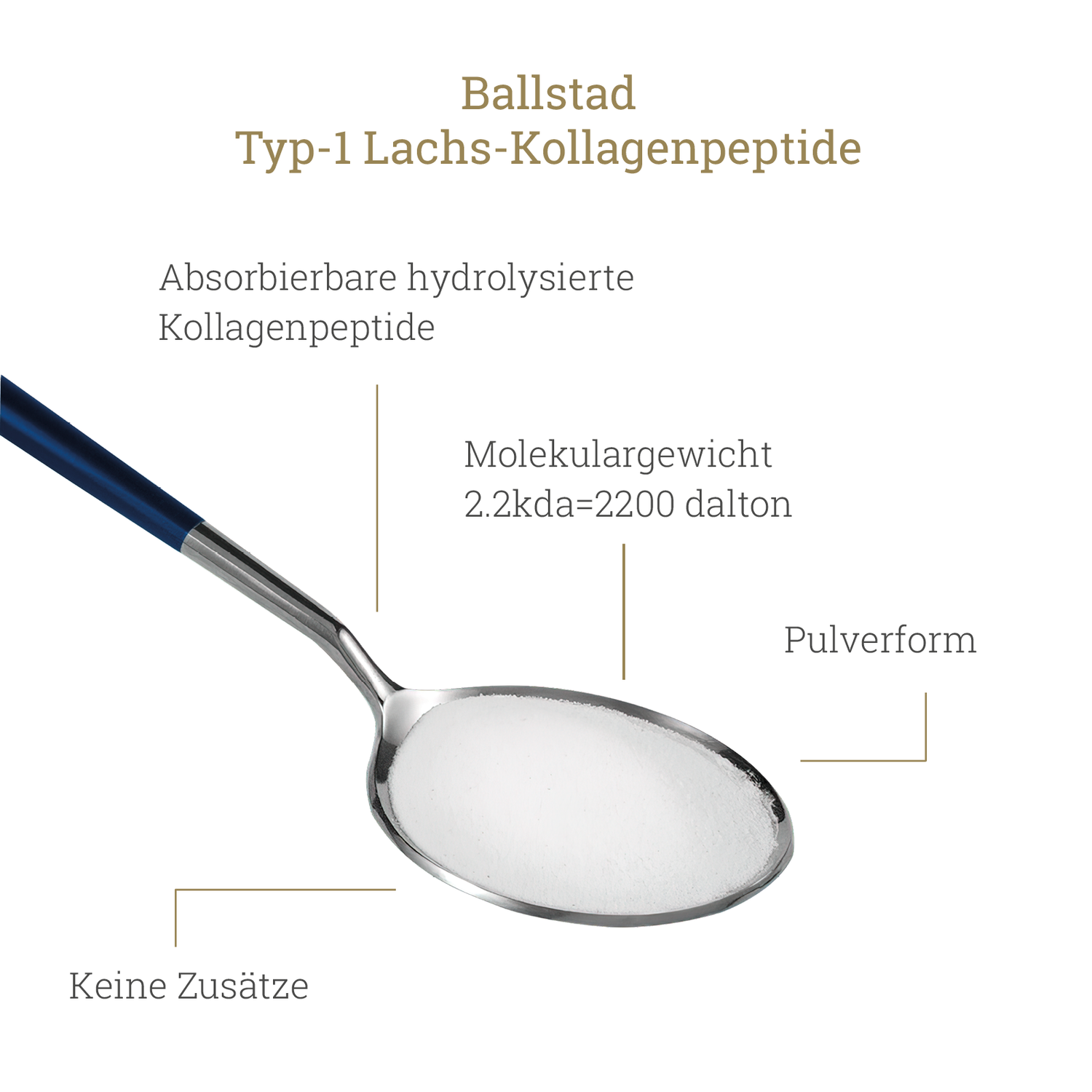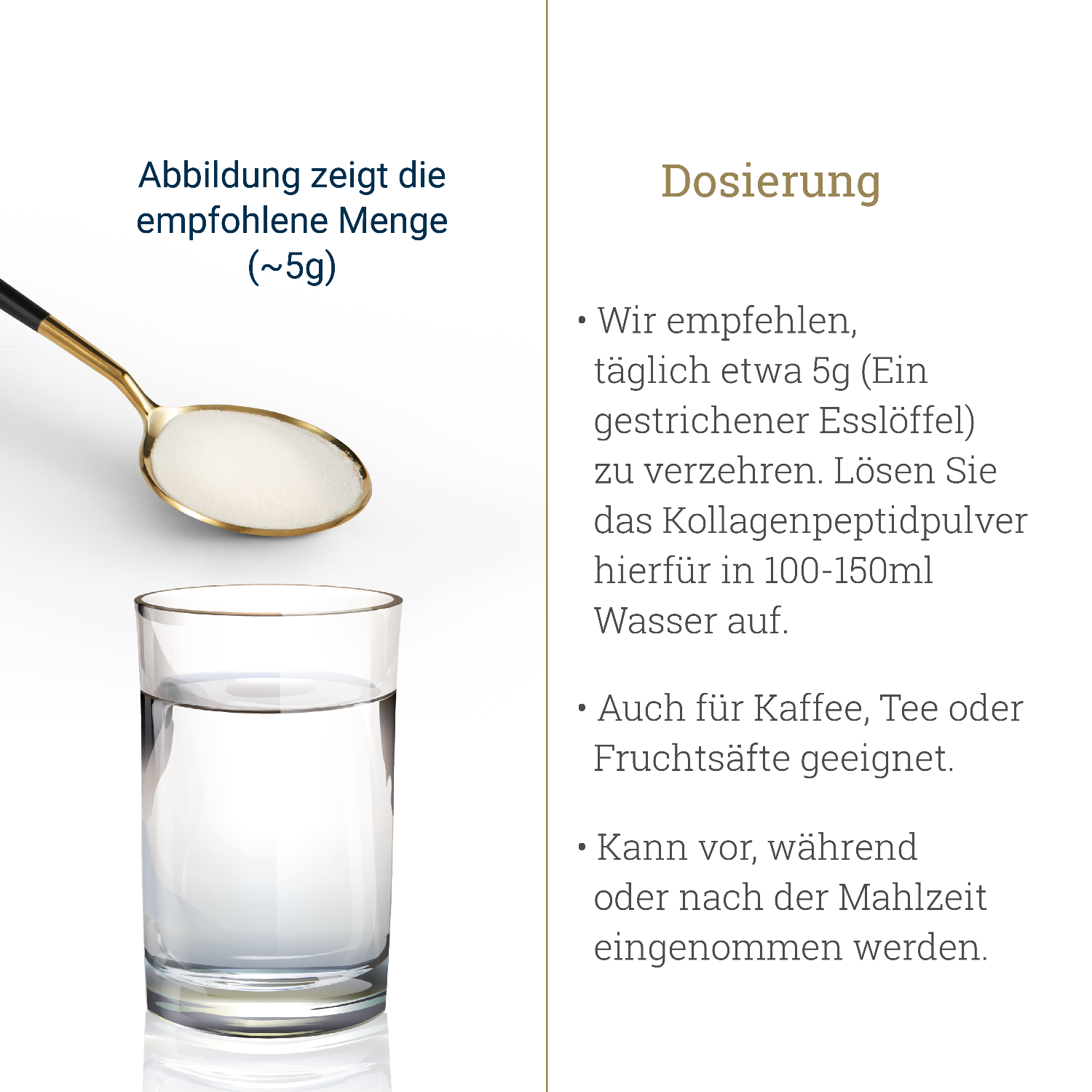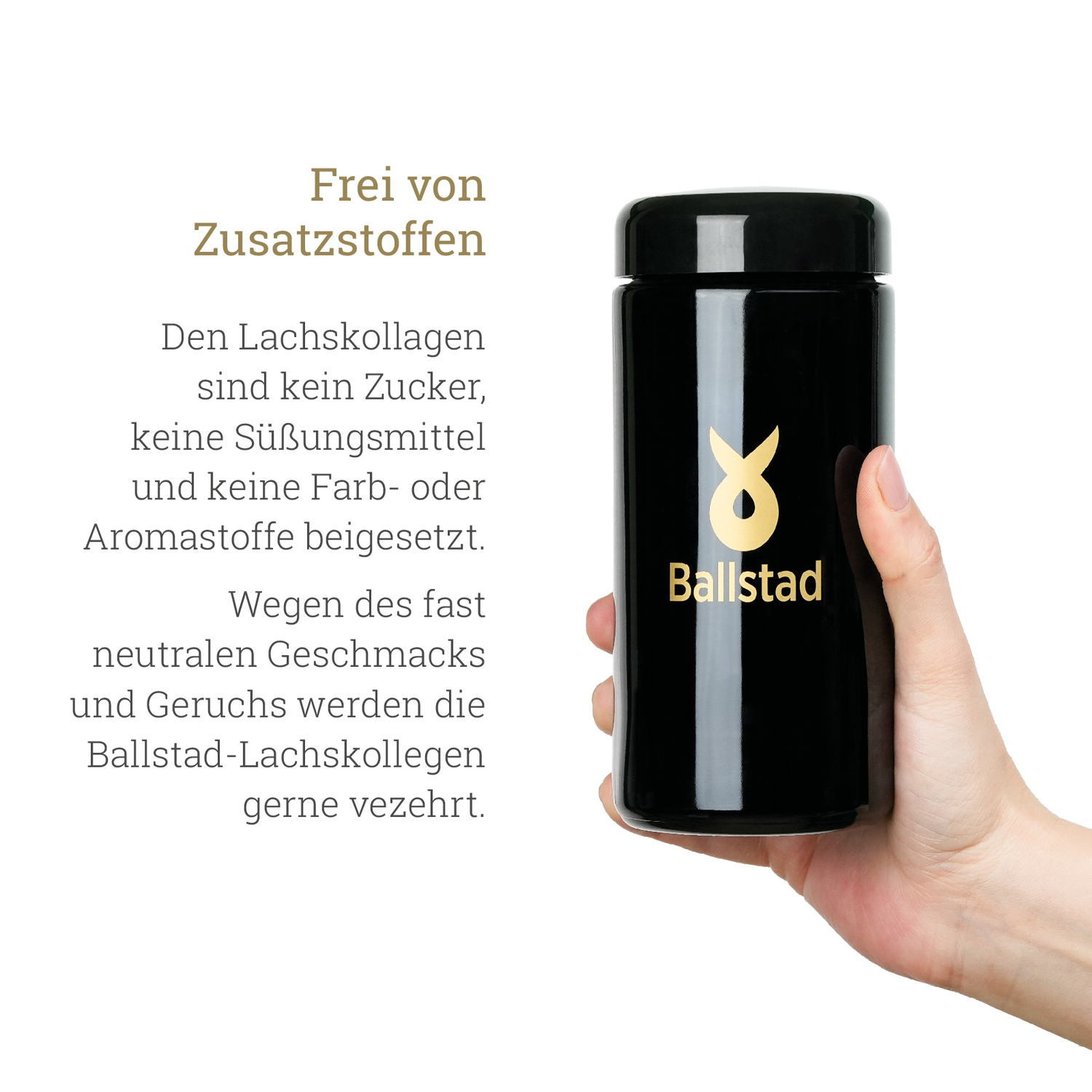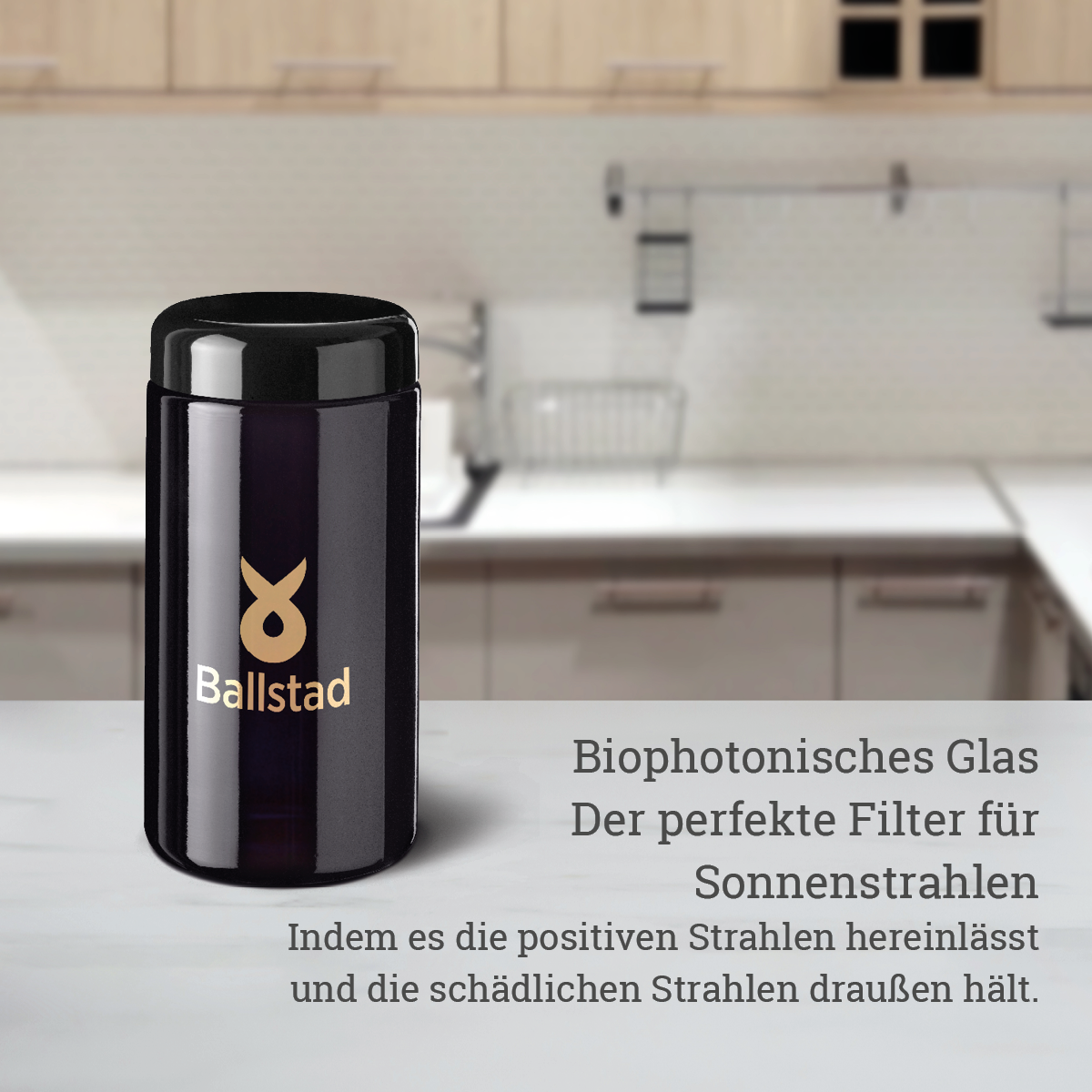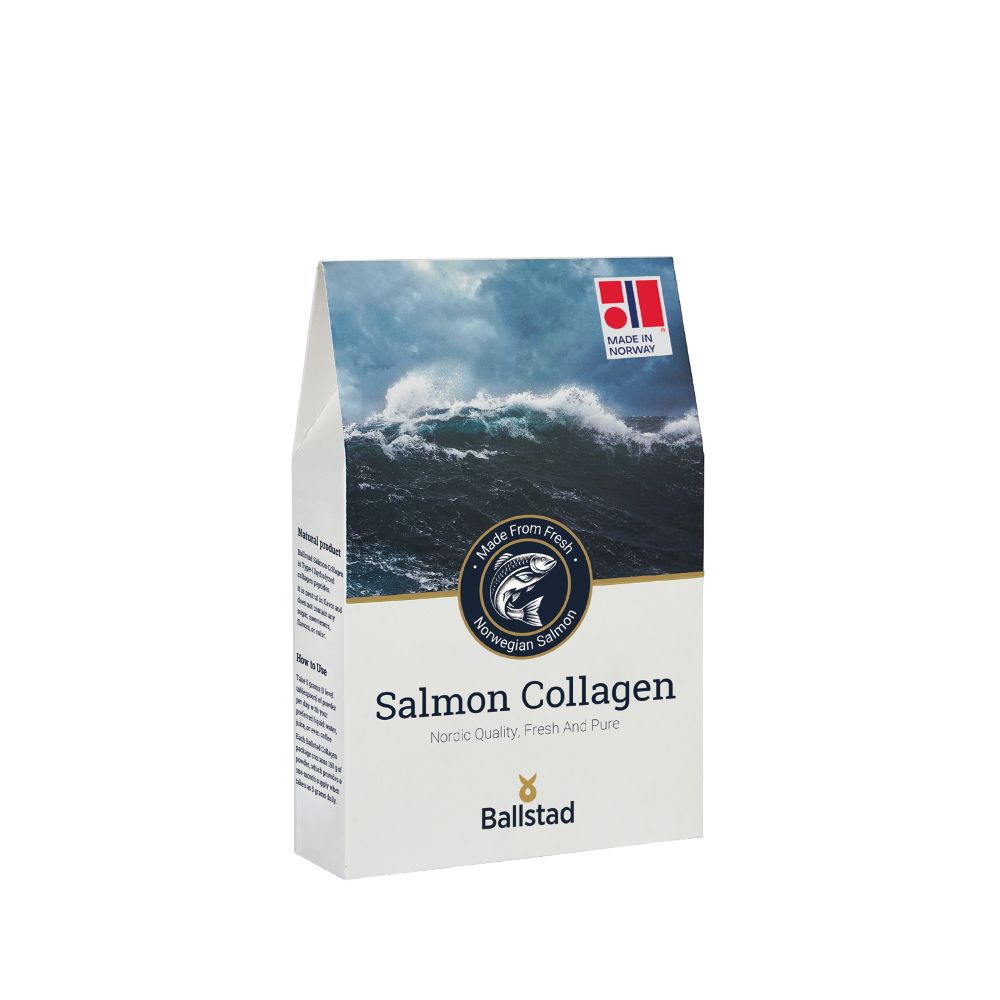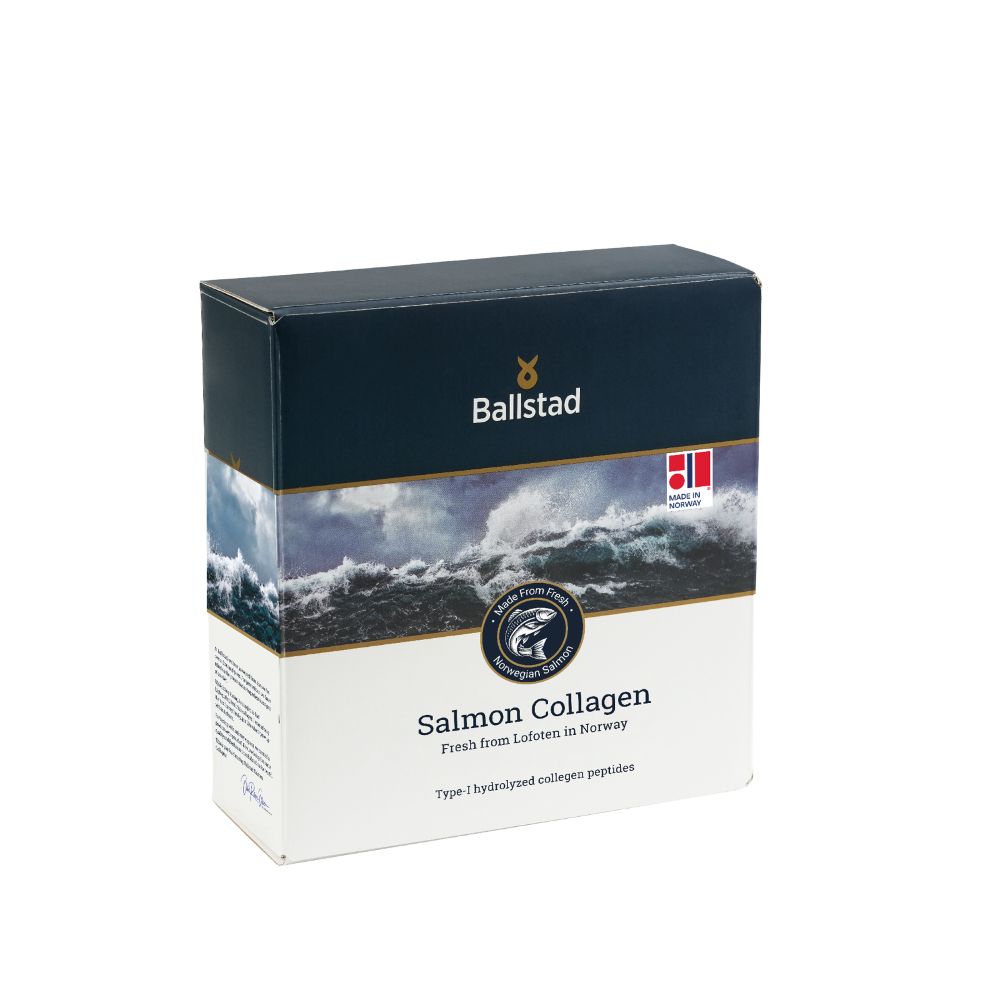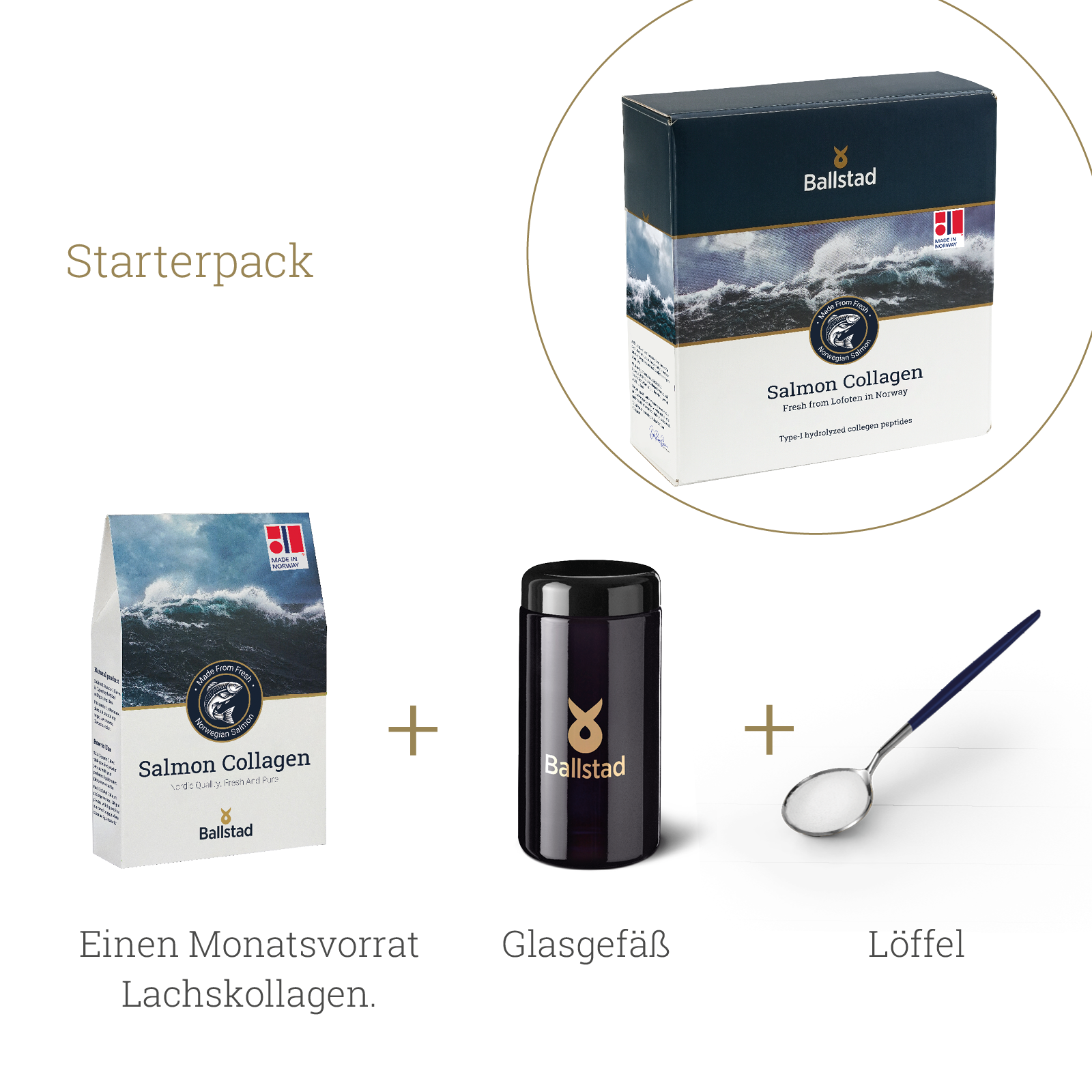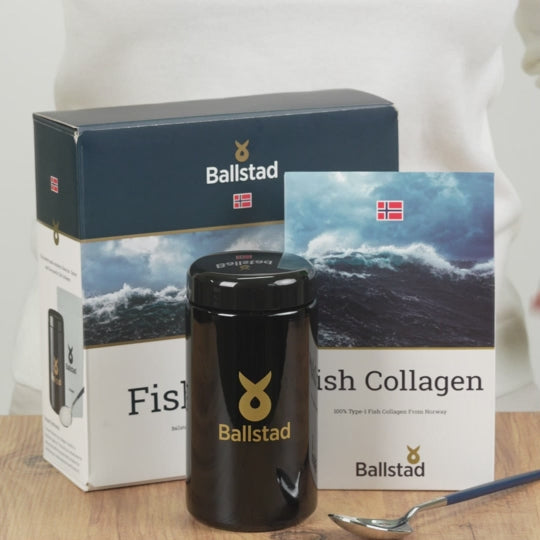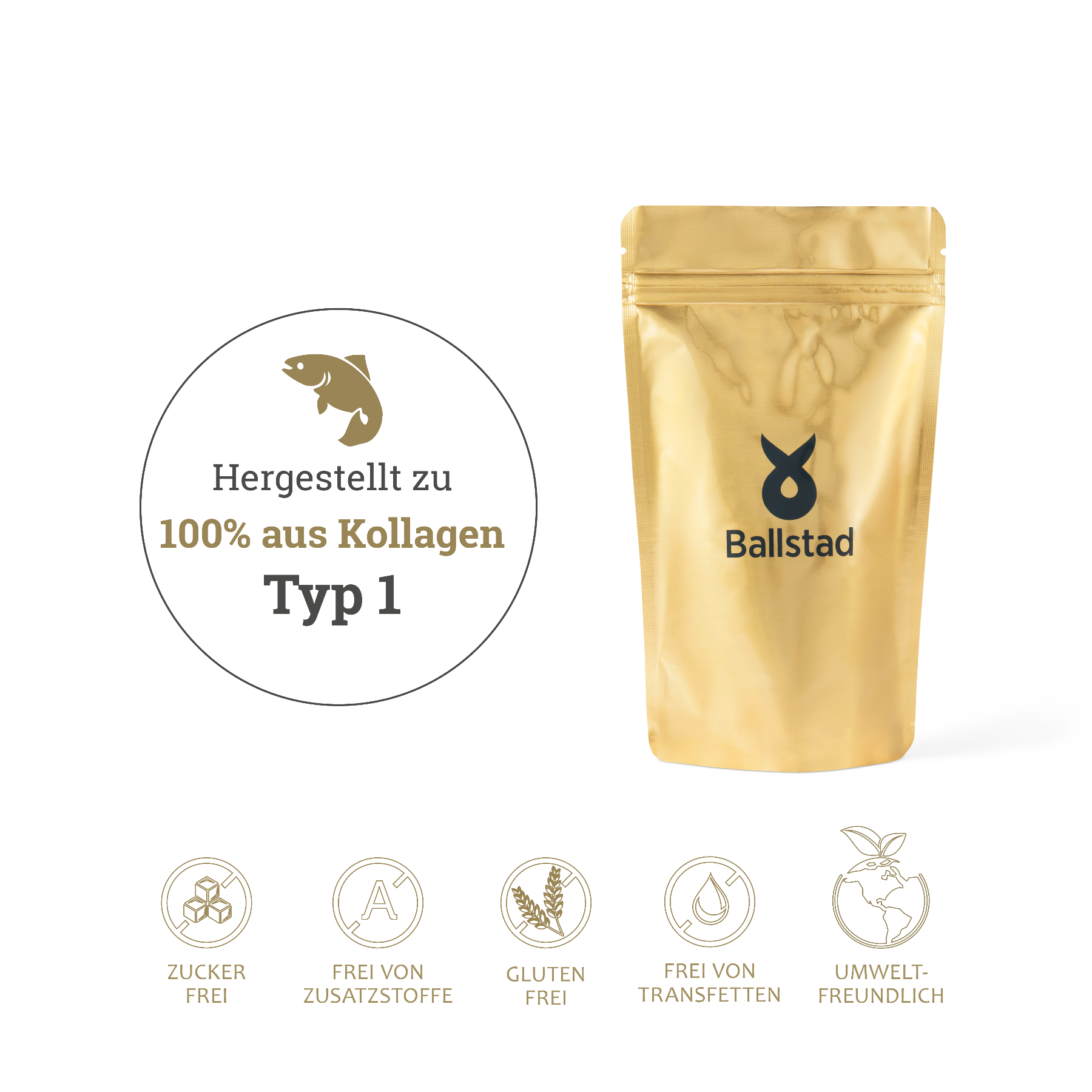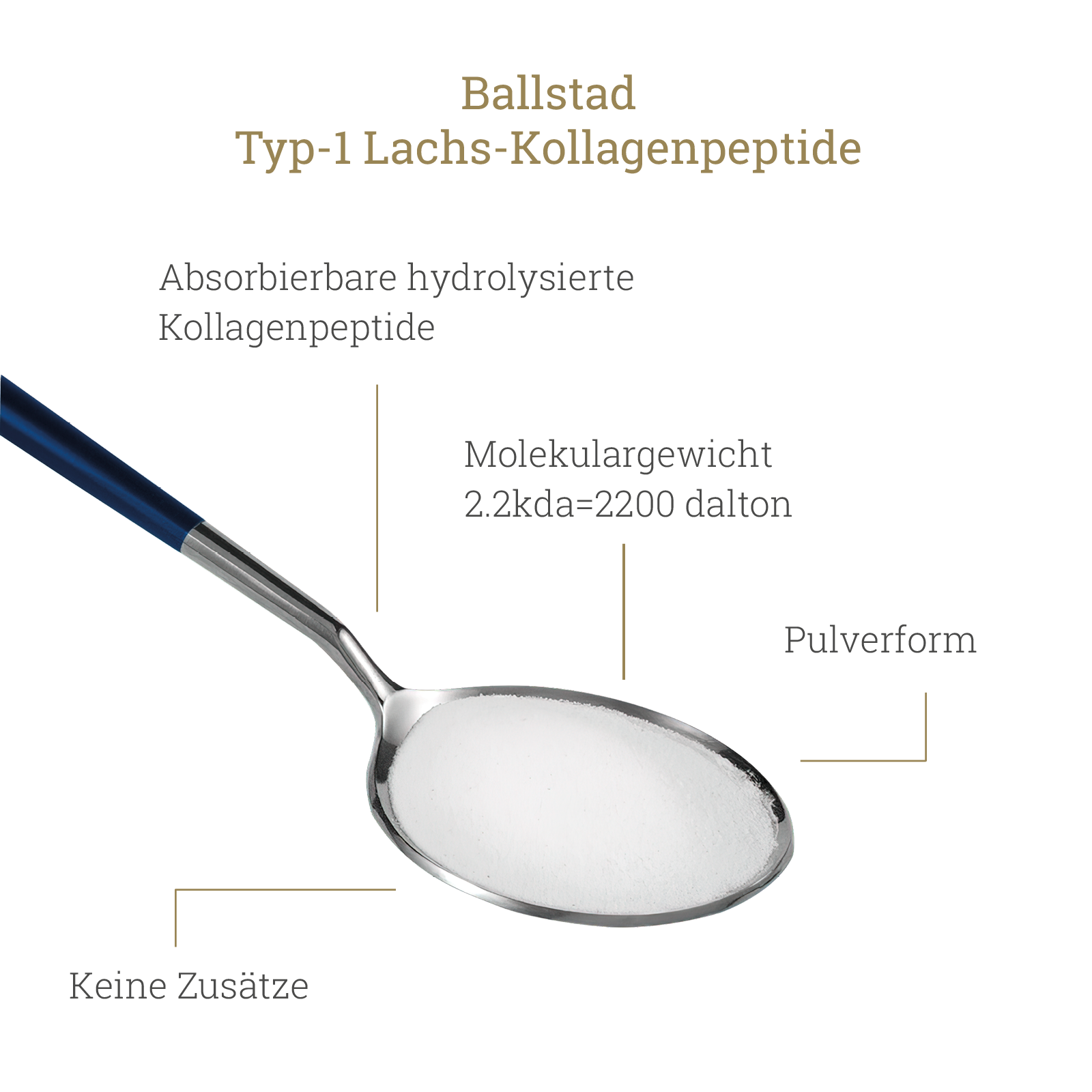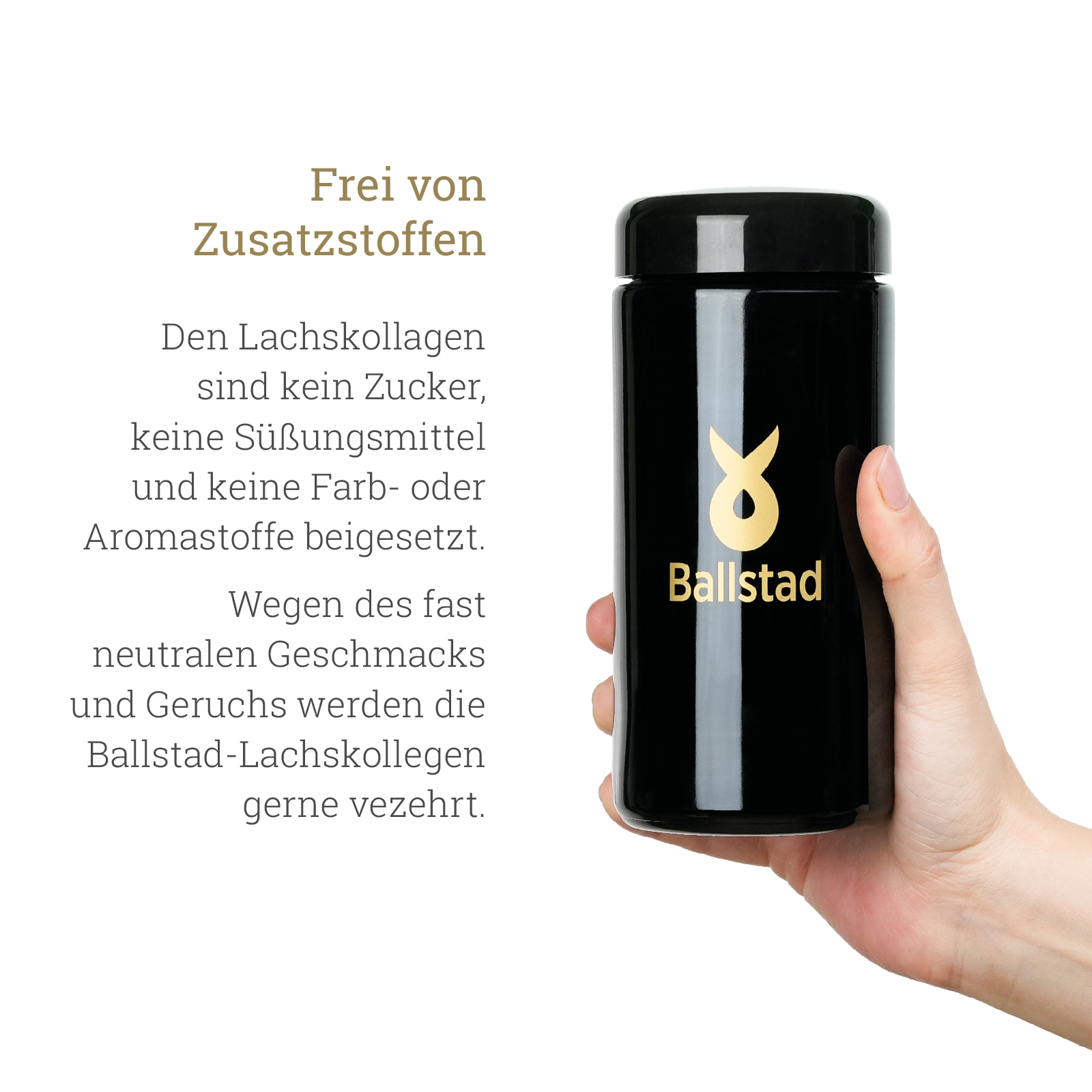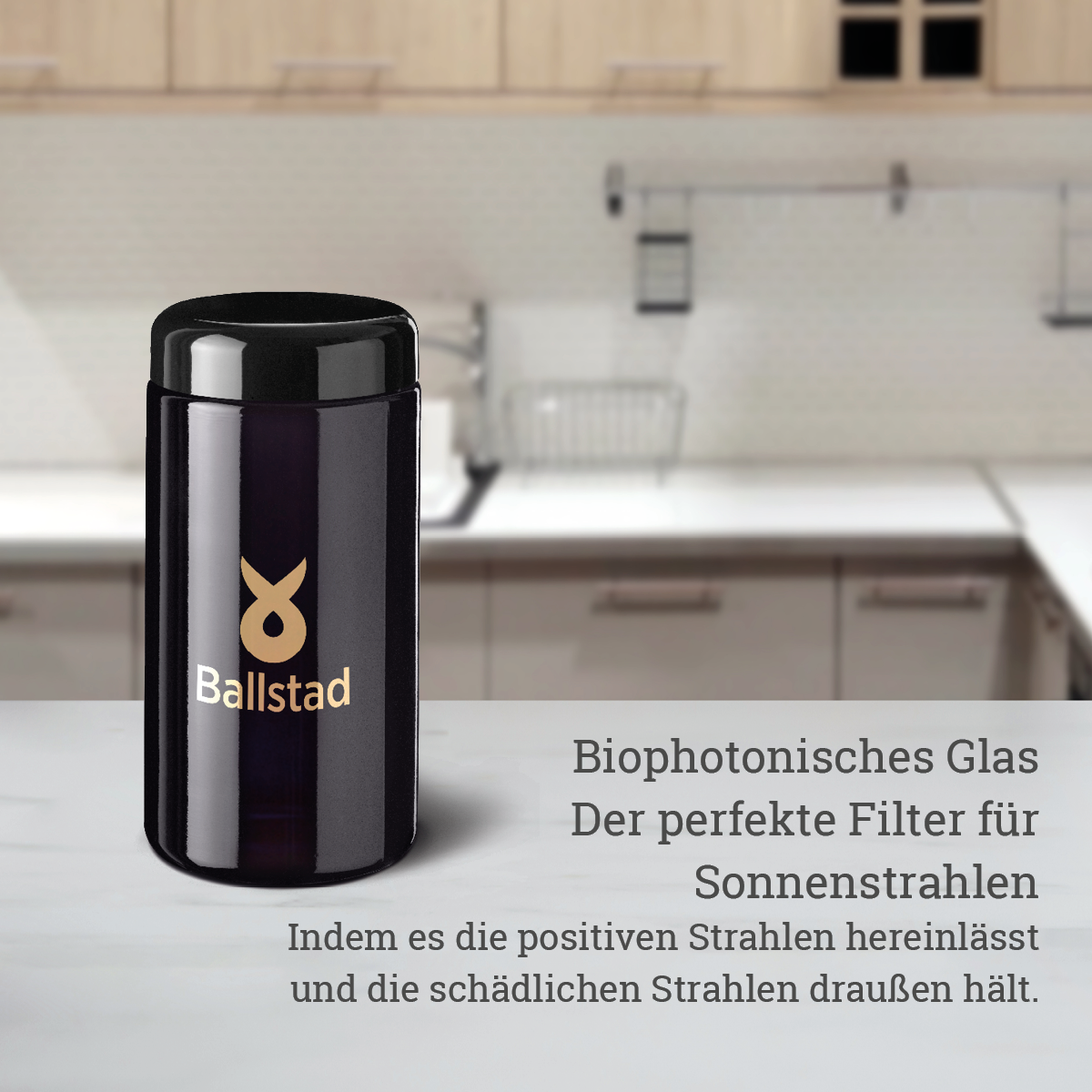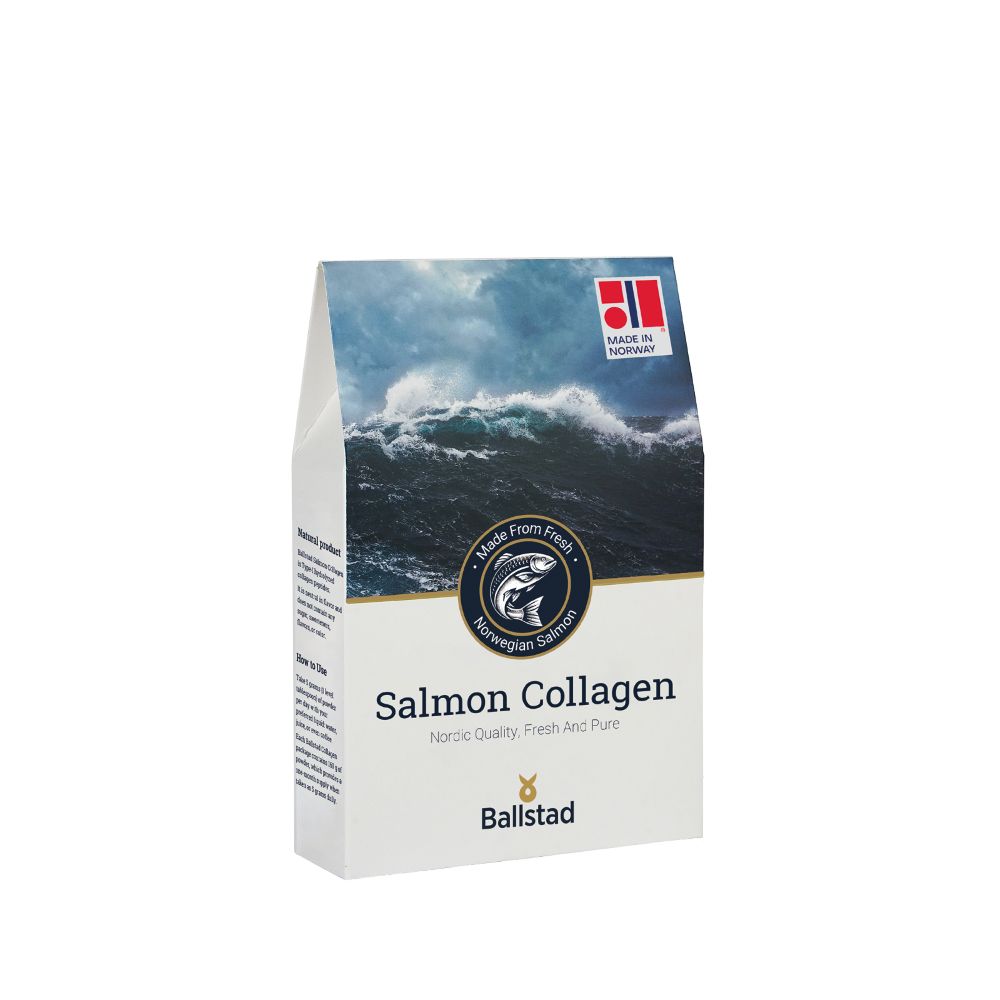Many people now know that omega-3 is an important component of a balanced diet – but which supplement is right for you? Amidst the confusing product range, we'll provide you with guidance.
EPA and DHA – what really matters
The most studied omega-3 fatty acids are eicosapentaenoic acid (EPA) and docosahexaenoic acid (DHA) . These are long-chain omega-3 fatty acids found in marine sources.
Scientific studies show that EPA and DHA contribute to maintaining normal heart function. DHA is also a component of the human brain and retina.
Conclusion: EPA and DHA are central – DHA in particular plays a role in relation to the brain and vision, while EPA and DHA together are important for the heart.
Check the composition carefully
When purchasing a dietary supplement, it's crucial to pay attention not only to the fish oil content, but also to the precise information on the omega-3 fatty acids it contains. Some manufacturers only list the total amount of fish oil, while others list the omega-3, EPA, and DHA content separately—which is much more transparent.
A product with 2,000 mg of fish oil can contain significantly less than 1,000 mg of omega-3. Even more crucial: only a portion of this can consist of EPA and DHA. Therefore, the actual content of these two fatty acids is crucial.
Conclusion: A good omega-3 supplement should contain a sufficiently high proportion of EPA and DHA. A guideline of 1,000 mg of omega-3 per day is recommended . Check the actual amount of EPA and DHA in each daily dose—not just the amount of fish oil.
Be careful with Omega-6 and Omega-9 supplements
Omega-6 and omega-3 fatty acids are both essential, but an excess of omega-6 leads to an imbalance because they compete with omega-3 for the same metabolic processes.
In Western diets, the omega-6 to omega-3 ratio is often between 10:1 and 20:1 , while a maximum ratio of 5:1 is recommended. Therefore, additional omega-6 supplements are not necessary.
As for Omega-9 , this monounsaturated fatty acid can be produced by the body itself, so supplementation is generally unnecessary.
Conclusion: Products with added omega-6 or omega-9 fatty acids should be avoided. Most people already get enough omega-6 from their diet, and the body can produce omega-9 itself.
Plant-based sources of omega-3 – what should you consider?
Some products contain exclusively plant-based omega-3 fatty acids—particularly alpha-linolenic acid (ALA) . While the body can partially convert ALA into EPA and DHA, the conversion rate is very low.
There is also currently insufficient scientific evidence to show that ALA has the same beneficial properties as EPA and DHA – particularly with regard to brain and visual function.
Bottom line: Make sure your supplement contains EPA and DHA from marine sources. Plant-based ALA alone is usually not enough to meet your long-chain omega-3 fatty acid needs.


